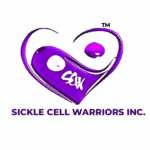[vc_row][vc_column][vc_column_text custom_title=”USING THE INTERNET TO FIND HEALTH INFO” header_color=”#dd3333″]
The pros and cons of finding information on the Internet
The Internet (Web) can be a good source of sickle cell disease information. Within a few minutes, you can learn about the latest sickle cell disease research, find a clinical trial or confirm a hematologist is board certified. And, every day, more information becomes available.
Although we have access to a lot of sickle cell disease information on the Web, there is one major drawback. It can be hard to know whether the information is correct and safe. Since anyone can create a website about sickle cell disease, the information may or may not be accurate.
[/vc_column_text][/vc_column][/vc_row][vc_row][vc_column][tdm_block_column_title title_text=”U09VUkNFUyUyME9GJTIwR09PRCUyMElORk9STUFUSU9OJTIwT04lMjBTSUNLTEUlMjBDRUxMJTIwRElTRUFTRSUyME9OJTIwVEhFJTIwV0VC” title_tag=”h3″ title_size=”tdm-title-md”][/vc_column][/vc_row][vc_row][vc_column][vc_column_text]
So, how can you be sure you’re getting the best information possible? Outside of a referral from a trusted source, the best way to be sure the content of a website is correct and up-to-date is to rely on a few well-known, trusted sites. These include:
Federal government sites, such as the Centers for Disease Control & Prevention (www.cdc.gov)
Large university sites
Established health organization sites, such as SCDAA (www.sicklecelldisease.org)
Of course, other websites can also provide good information, but these trusted sites are often the best places to begin a search.
[/vc_column_text][/vc_column][/vc_row][vc_row][vc_column][td_block_text_with_title custom_title=”HOW TO FIND INFORMATION ON SICKLE CELL DISEASE ON THE WEB” header_color=”#dd3333″]
There are two main ways to find information on the Web. One is to search by topic. For example, if you are looking for information on support groups, you can search by using the words “sickle cell disease support groups.” If this gives too many results, you can narrow your search by adding more specific words. Adding “Atlanta” should call up sites with support groups located in Atlanta.
Another way to search is by specific name. Most organizations and government agencies have their own websites. For example, if you are looking for information from the National Institute of Health (NIH), type in “National Institute of Health” or “NIH.” This should call up the NIH website and give you access to all of their online information.
Often, you do not have to search the Web if you are given the “address” of a website (also called the URL, for uniform resource locator). By typing in the URL on the “address” line of your browser, the browser will link to the site. For example, typing in the NIH’s Web address “www.nih.gov” will link directly to the NIH website.
Learning to find information on the Web can take a little time. There is so much available that, for most people, it takes some practice to develop the skills required to find credible information. Local libraries, colleges and adult education centers can help people new to computers search for information on the Web.
[/td_block_text_with_title][/vc_column][/vc_row][vc_row][vc_column][/vc_column][/vc_row]
